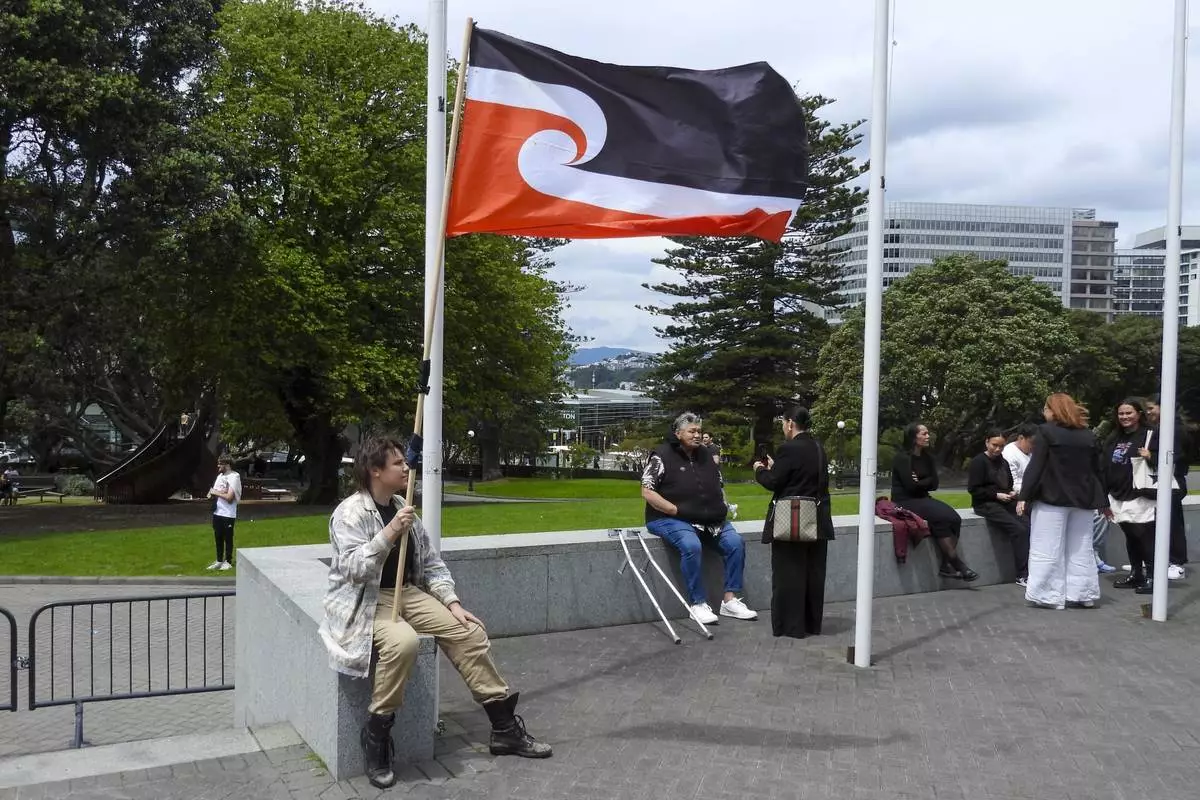STUTTGART, Germany (AP) — Top-seeded Iga Swiatek beat Elise Mertens 6-3, 6-4 to advance to the Porsche Grand Prix quarterfinals on Thursday.
The top-ranked Swiatek will face next Emma Raducanu, who knocked out Linda Noskova 6-0, 7-5.
Earlier, fourth-seeded Elena Rybakina battled her way into the quarterfinals in a roller coaster 7-6 (3), 1-6, 6-4 victory over Veronika Kudermetova.
Rybakina managed to stave off three break points toward the end of the opening set and then took control of the tiebreaker. But her errors mounted in the second set as Kudermetova began to dominate.
Rybakina regained control in the decider and surged to 4-1 before more errors allowed Kudermetova to level. But the Kazakh player rallied again to take a tight service hold and close out the match.
She will face Jasmine Paolini after the Italian upset seventh-seeded Ons Jabeur 7-6 (8), 6-4.
Sixth-seeded Markéta Vondroušová also reached the quarterfinals after seeing off Anastasia Potapova 7-6 (5), 6-1. The Wimbledon champion has lined up second-seeded Aryna Sabalenka.
Eight of the top 10 ranked women are at the tournament, the main event in the first week of clay tournaments on the WTA Tour.
AP tennis: https://apnews.com/hub/tennis

Poland's Iga Swiatek celebrates defeating Belgium's Elise Mertens after the women's singles round of 16 tennis match at the WTA Tour in Stuttgart, Germany, Thursday April 18, 2024. (Marijan Murat/ after her victory. Photo: Marijan Murat/dpa via AP)

Poland's Iga Swiatek plays a return to Belgium's Elise Mertens during the women's singles round of 16 tennis match at the WTA Tour in Stuttgart, Germany, Thursday April 18, 2024. (Marijan Murat/dpa via AP)

Poland's Iga Swiatek serves to Belgium's Elise Mertens during the women's singles round of 16 tennis match at the WTA Tour in Stuttgart, Germany, Thursday April 18, 2024. (Marijan Murat/dpa via AP)

Poland's Iga Swiatek celebrates defeating Belgium's Elise Mertens after the women's singles round of 16 tennis match at the WTA Tour in Stuttgart, Germany, Thursday April 18, 2024. (Marijan Murat/ after her victory. Photo: Marijan Murat/dpa via AP)
WELLINGTON, New Zealand (AP) — A New Zealand parliamentary committee has recommended the unprecedented suspensions of three Māori lawmakers for performing a protest haka in the debating chamber last year.
The haka is a chanting dance of challenge of great cultural importance in New Zealand, and the three lawmakers from Te Pāti Māori, the Māori party, performed one to oppose a controversial bill that would have redefined the country’s founding document.
A committee Wednesday recommended record suspensions and severe censure — the harshest penalties ever assigned to New Zealand parliamentarians — after finding the trio in contempt of Parliament.
Government bloc lawmakers, who hold the majority, are expected to endorse the penalties in a vote Tuesday. But Parliament’s Speaker Gerry Brownlee took the unusual step Thursday of saying he would first allow unlimited debate before the vote due to the severity of the proposed punishments.
The recommendations were the latest twist in the fraught saga over the bill, now defeated, that opponents said would have provoked constitutional havoc and reversed decades of progress for Māori, New Zealand’s Indigenous people.
Video of the legislators in full cry drew global attention last November. The bill they opposed was vanquished at a second vote in April.
However, some lawmakers from the center-right government objected to the Māori Party legislators’ protest during the first vote and complained to parliament’s speaker. At issue was the way the trio walked across the floor of the debating chamber towards their opponents while they performed the haka.
“It is not acceptable to physically approach another member on the floor of the debating chamber,” Wednesday’s report said, adding that the behavior could be considered intimidating. The committee denied the legislators were being punished for the haka, which is a beloved and sacred cultural institution in New Zealand life, but “the time at and manner in which it was performed” during a vote, according to the findings.
The committee deciding the fate of the lawmakers has members from all political parties. The government’s opponents disagreed with parts or all of the decision but were overruled.
“This was a very serious incident, and the likes of which I have never seen before in my 23 years in the debating chamber,” said the committee's chair, Judith Collins.
The three legislators didn’t appear before the committee when summoned in April because they said Parliament doesn’t respect Māori cultural protocol and they wouldn’t get a fair hearing.
“The process was grossly unjust, unfair, and unwarranted, resulting in an extreme sanction,” Māori party spokesperson and lawmaker Mariameno Kapa-Kingi said in a statement. “This was not about process, this became personal.”
The report recommended that Hana-Rāwhiti Maipi-Clarke, who at 22 is New Zealand’s youngest lawmaker, be suspended from Parliament for seven days. The co-leaders of her political party, Rawiri Waititi and Debbie Ngarewa-Packer, face 21-day bans.
Three days is the longest a lawmaker has been barred from the House before. Suspended legislators are not paid during their bans.
Waititi and Ngarewa-Packer, the leaders of the party that advocates Māori rights and holds six of Parliament’s 123 seats, have lambasted the committee’s process as intolerant of Māori principles and identity.
The pair received more severe sanctions than Maipi-Clarke because the younger lawmaker had written a letter of “contrition” to the committee, the report said.
The Principles of the Treaty of Waitangi Bill sought to redefine New Zealand’s founding document, the 1840 pact between the British Crown and Māori leaders signed during New Zealand’s colonization.
The English and Māori language versions of the treaty differed, and the Crown immediately began to breach both, resulting in mass land thefts and generations of disenfranchisement for Māori, who remain disadvantaged on almost every metric. But in recent decades, Māori protest movements have wrought growing recognition of the Treaty’s promises in New Zealand’s law, politics and public life.
That produced billion-dollar land settlements with tribes and strategies to advance Indigenous language and culture. Such policies were the target of the bill, drawn up by a minor libertarian party who denounced what they said was special treatment for Māori as they tried to rewrite the treaty's promises.

FILE - A protester against the Treaty Principles Bill sits outside Parliament in Wellington, New Zealand, Thursday, Nov. 14, 2024. (AP Photo/Charlotte Graham-McLay, File)

FILE -Hana-Rāwhiti Maipi-Clarke speaks to the thousands of people gathered outside New Zealand's parliament to protest a proposed law that would redefine the country's founding agreement between Indigenous Māori and the British Crown, in Wellington, Nov. 19, 2024. (AP Photo/Mark Tantrum, File)

FILE -Hana-Rawhiti Maipi-Clarke, right, and her colleagues from Te Pāti Māori, talk to reporters following a protest inside Parliament in Wellington, New Zealand, Thursday, Nov. 14, 2024. (AP Photo/Charlotte Graham-McLay, File)

























































